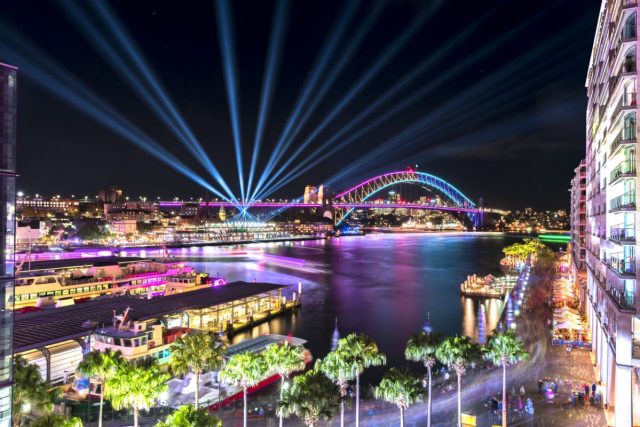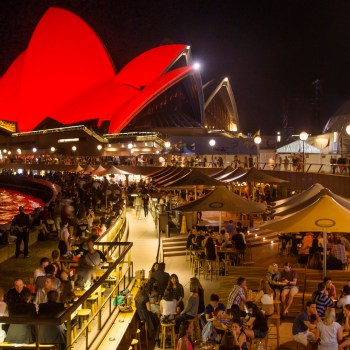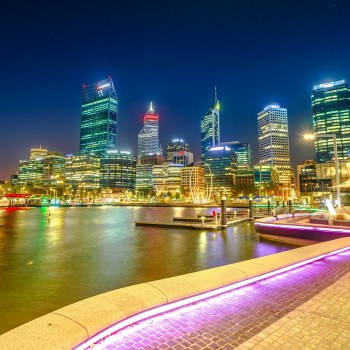Last year the New South Wales Government introduced a package of reforms through the 24 Hour Economy Legislation Amendment (Vibrancy Reforms) Act 2023.
Most of these reforms commenced on 12 December 2023. However, several of the more complex reforms and those that involved significant systems changes and consultation with stakeholders prior to implementation commence today.
Specifically there are seven reforms starting today, these are:
- Disturbance complaints reform – The Vibrancy Reforms designated Liquor & Gaming NSW (L&GNSW) as the lead regulator for noise and disturbance complaints associated with licensed venues. The reforms see a streamlined regulatory approach to sound management.
The mechanism to lodge noise and disturbance complaints against licensed venues still exists to protect the amenity of the local community. However, under the reforms, the statutory disturbance complaint framework and thresholds have been strengthened to ensure all complaints are valid and reasonable.
Importantly, licensed premises are exempt from noise pollution laws if the venue is operating in accordance with its liquor licence and the Liquor Act. However, to ensure noise from licensed premises can be addressed, including where an immediate response is required, an improvement notice can be issued by NSW Police or L&GNSW in certain circumstances. These notices can include a direction for noise to cease.
More information is available through the regulation of venue sound management webpage. - Liquor licence application reforms – The process for liquor licence applications has been streamlined. The changes are part of efforts to modernise the liquor licensing systems, reduce costs and make it quicker and easier for licensed businesses in NSW to start, grow and diversify, while managing the risk of alcohol-related harm and making it easier for the community to have their say.
The primary change to the application process is to remove the 30-day pre-lodgement consultation period and move to a single community consultation model facilitated primarily via the L&GNSW noticeboard.
Certain applications will be required to be accompanied by a Statement of Risks and Potential Effects (SoRPE), when the application is lodged with L&GNSW. The SoRPE captures similar content to the previous Community Impact Statement. Generally, for applications that previously required a Category A or Category B CIS, a SoRPE will be required.
A SoRPE will be used as an additional tool to assist the Authority in determining the risks and potential effect of applications.
For more information visit the consultation reforms webpage. - Live music or arts and cultural events – When a hotel that schedules live music or arts and cultural events applies for an extended trading authorisation, the Independent Liquor & Gaming Authority must give due weight to the strong positive social impact associated with hosting these events.
Certain criteria will apply, including live music or arts and cultural events being part of the venue’s regular business activities, the venue being required to hold two events on different days in a 7-day period, and scheduling the performances after 8pm for 45 minutes or more. Gaming machines cannot be operated during the extended trading period.
The proposed extended trading hours must be permitted under the licensed premises development consent. The extended trading application form is here. - Limited takeaway authorisation – Small bars and licensed restaurants can apply for an authorisation that allows them to sell a limited amount of liquor for takeaway and home delivery.
Under the authorisation, purchases must be with food and each customer’s order is limited. Licensed restaurants can sell one sealed bottle of wine up to 750ml, or not more than six sealed containers of beer, cider or ready-to-drink alcoholic beverages with a combined maximum volume of 2250ml, or not more than four sealed containers of house-made cocktails with a combined maximum volume of 1000ml.
A small bar can sell one sealed bottle of wine up to 750ml, or not more than six sealed containers of beer, cider or ready-to-drink alcoholic beverages with a combined maximum volume of 2250ml.
Licensed restaurants and small bars (including those that are currently selling takeaway or home delivery under L&GNSW’s relaxed enforcement approach taken during COVID-19) will have six months to apply for the authorisation. The application fee will be waived for the first six months until 31 December 2024. - Re-entering the industry – Former licensees with a licensee endorsement expiry date within the last 3 years will now be able to renew their Responsible Service of Alcohol (RSA) or Licensee endorsement by completing Licensee Training only.
Prior to the NSW Government’s Vibrancy Reforms, licensees were required to complete both the RSA and Licensee training course as the only pathway to renewing their expired endorsements.
Further information on how to apply can be found here Licensee and Advanced Licensee Training. - Signage requirements for unaccompanied minors in bottle shops – The Vibrancy Reforms Act introduced new requirements around minors in bottle shops and areas dedicated to the sale of takeaway liquor.
Licensees are required to ensure there is adequate signage for the new requirements. The signs must be located in an area where it would inform a person entering the area that persons under the age of 18 years in the area must, by law, be in the company of a responsible adult.
Full details on the changes regarding unaccompanied adults in specified areas is available here. - Interstate digital driver licences – these are now recognised as a relevant evidence of age document in NSW. Several states in Australia have now produced digital driver licences in their own jurisdiction, which can be stored in an app on a person’s phone or device. As many people only carry digital driver licences and do not carry their physical driver licence with them, allowing people to produce their digital driver licences as a relevant evidence of age document will be a more efficient and effective way of checking a person’s age, particularly in circumstances where they are not in possession of their physical ID.
For more information, visit the Evidence of Age webpage.
More information on all of the NSW Vibrancy Reforms is available on the NSW Government website.



